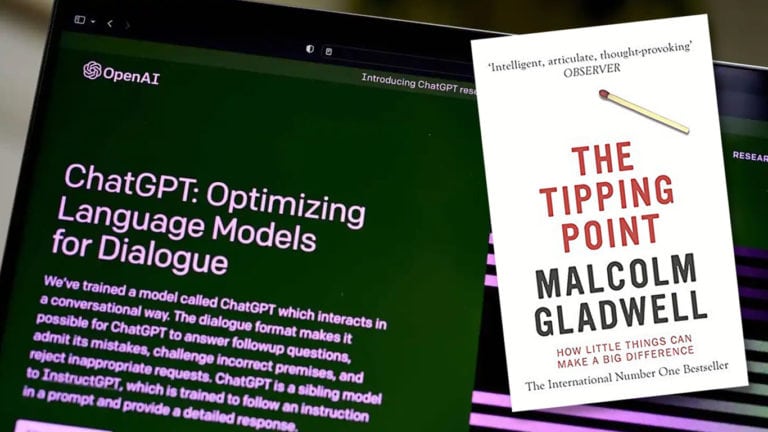Mastering Long Distance Relationships – Real Tips
My 12 year engagement between the US and Taiwan
The magic of human connection is a subject that has always fascinated me. Today, I want to share with you the story of my journey with my fiancé, a journey that spans more than a decade and transcends physical distance. We aren’t perfect and have made plenty of compromises over the years that have allowed us to make it this far, and our 15 year age gap is an entirely different topic that we can discuss in the future. Yet, somehow, we’ve managed to build an incredible relationship, and I want to share with you some of these key ingredients that have helped us defy the odds. Hopefully, it can offer some help to those facing the challenge of sustaining a long-distance relationship.
Here’s how I mastered long distance relationships
However, most of the article will boil down to these 5 key tips.
- Set realistic expectations in a relationship and acknowledge that everyday life isn’t always a thrilling honeymoon.
- Recognize and appreciate the sacrifices each person makes in the relationship, especially those who leave their home countries to start anew in unfamiliar territory.
- Building a strong emotional connection is vital, as physical intimacy alone cannot sustain a genuine, long-lasting relationship.
- Communicate consistently and make an effort to connect with your partner every day.
- Understanding your partner’s culture and making an effort to appreciate it is essential to building a solid foundation for the relationship.
From 90 Day Fiancé to Reality
When I find myself with some downtime, I often turn to binge-watching reality TV shows. And one show that I particularly enjoy watching is 90 Day Fiancé. It’s not just mindless entertainment for me; there’s a fascinating human experiment going on there. But beyond that, I can relate to it on a personal level.
You see, I was engaged to my now-wife for 12 years while I was living in the United States, and she lived in Taiwan. Our long-distance relationship lasted for over a decade until we were finally able to get married recently. So when I watch shows like 90 Day Fiancé, I can’t help but reflect on how we handled things in our relationship versus how the couples on the show are handling things. It’s a chance for me to juxtapose the two and see how things could have been done differently if they wanted it to work the same way it worked for my wife and me.
Now, let’s face it, most relationships on 90 Day Fiancé are a train wreck waiting to happen. Some fizzle out, some crash and burn, and in rare cases, they work out. But what makes these couples fail where others succeed? I’ve identified a few key problems that seem to plague these relationships.
First off, the context in which these couples meet is anything but ordinary. They’re usually in a foreign country as a tourist, having the time of their lives, partying, and indulging in activities they wouldn’t typically do back home. The atmosphere is akin to a honeymoon, with a constant need for excitement and togetherness. This creates an unrealistic expectation of the relationship, as they’re giving their partner an immense amount of attention and time they might not be able to sustain in the long run.
Secondly, there’s the money factor. Many spend more to impress their partner during these romantic getaways than they would in their everyday lives. This can create a false impression that the person is wealthy or more than willing to splurge on their partner without a second thought. Consequently, this sets an unsustainable standard for the relationship moving forward.
Another significant issue is the assumption that life in the United States is inherently better than in the partner’s home country. This belief leads to the misconception that people from other countries are living in poverty, lacking technology, or missing out on the comforts that America has to offer. But this is far from the truth. Many people love their home countries, and they are content with their lives there. The decision to leave everything they know and love to start anew in another country is an enormous sacrifice, often overlooked by their American counterparts. Recognizing and appreciating this sacrifice is essential to building a solid foundation for the relationship.
Lastly, it’s hard not to notice that many of these relationships revolve around sex. While physical intimacy is essential in a relationship, it shouldn’t be the sole focus. In a long-term, long-distance relationship, the bond between two people must be strong enough to withstand periods of separation and lack of physical intimacy. Couples need to realize that sex, while a valuable aspect of a relationship, shouldn’t make or break their connection.
So what can we learn from the rollercoaster of emotions and drama that is 90 Day Fiancé? For one, it’s essential to set realistic expectations in a relationship, acknowledging that everyday life isn’t always a thrilling honeymoon. Secondly, it’s crucial to recognize the sacrifices each person makes in the relationship, especially those who leave their home countries to start anew in unfamiliar territory. Finally, building a strong emotional connection is vital, as physical intimacy alone cannot sustain a genuine, long-lasting relationship.
How our story began
I can still vividly recall the first time I laid eyes on my fiancé. I was attending a lavish company event at a trendy club, where my company had splurged on half of the entire venue. As fate would have it, we met, we danced, we talked, and that was pretty much how our story began.
After that fateful night, we didn’t reconnect for several months. Work consumed my life, and our initial encounter seemed to fade into memory. However, three months later, I found myself back in Taiwan and reached out to her, suggesting we watch a movie together. We met up, and I was struck by her natural beauty and confidence as she showed up without makeup, completely at ease with herself. Our language barrier didn’t matter – we connected through laughter, and our bond began to grow.
Over the next six months, our relationship bloomed through text messages and occasional FaceTime calls. We had entered the honeymoon phase, but it was an unusual one that unfolded entirely in the digital realm. A year after our first meeting, I asked her to join me on a romantic vacation to Sun Moon Lake in Taiwan, and it was there that I proposed.
Our engagement marked the beginning of a 12-year journey, during which we continued to communicate almost daily, despite living on opposite sides of the world. I would visit her in Taiwan three or four times a year, for a week at a time. Our conversations formed the bedrock of our relationship, allowing us to know each other intimately, from our deepest fears to our wildest dreams.
There’s a raw honesty that comes with long-distance relationships. The superficialities of wealth and status fade away, revealing the authentic connection beneath. We learned to appreciate the sacrifices we made for one another, understanding the challenges of adapting to each other’s cultures and lifestyles. My fiancé lived in bustling Taipei, while I resided in suburban Orange County, two worlds that couldn’t be more different. Yet we both tried to understand and appreciate the unique aspects of each other’s lives.
As the years went by, our bond grew stronger. We began to entertain the idea of giving up our respective careers to be together – a testament to the strength of our love. However, we have yet to make that leap, still searching for an alternative that would allow us to maintain our careers and be together. However, despite our longing to be together, I try my best not to pressure her into moving here because I’ve come to understand everything she would have to sacrifice to make that move. I believe that over time the number of things we felt were sacrificed has diminished more and more. For me, the need to have a big home and be near my son, friends, and family has become less important, as are her need for the convenience of things offered by big city life and her relationships with friends and family.
Our physical intimacy is, understandably, limited by our circumstances. However, this has made us appreciate the importance of emotional intimacy even more. As a long-term couple, our focus shifted from sex to simply enjoying each other’s company – cooking together, watching TV, and spending time with family and friends. Our relationship evolved into something more profound and enduring, built on a foundation of understanding and mutual respect.
How our story continues today
To maintain our connection, we make an effort to communicate every day. We try to text each other daily, and we spend most of the morning talking to each other on FaceTime for about 20 days out of the month. Our routine is simple: every morning when I get to work, I text her to let her know I arrived at the office, and then either I call her, or she calls me. After that, I simply put my phone on my desk while I work. She does her own thing, whether watching TV shows or playing video games, and we talk throughout the day as if we were physically sitting together. We share funny or interesting things we come across, and we’ve been able to build a virtual living-together dynamic that works for us.
I think this level of communication is a huge effort that many people have a hard time making. But for a long-term relationship to work, it has to be like that. It’s the only way to maintain a true constant connection.
It’s not always easy, of course. We can’t physically be there for each other all the time, which can be challenging. We only see each other twice a year for one week at a time these days, and even then, sex isn’t the focus of our time together. We’re more focused on catching up, hanging out, and spending time with each other’s families and friends. Our relationship is built on so much more than physical intimacy.
Our understanding of each other and our commitment to making this relationship work have helped us overcome those challenges. We know what sacrifices we need to make to keep our relationship strong, and we’re willing to make them. I think that’s why our relationship continues to work after all these years. It’s not just about physical proximity or even physical intimacy. It’s about the deeper connection we share, our understanding of each other, and the effort we make to maintain that connection every day.
And that’s what I think is the key to a successful long-term relationship: a deeper connection beyond physical proximity or even physical intimacy. It’s about understanding each other, making sacrifices, and communicating consistently. If you can do that, you’re long-distance relationship might be able to transcend time and distance, and you might be able to build a relationship that lasts a lifetime.
So to recap, here again, are five key bullet points of tips that people can take away to help them sustain long-distance relationships:
- Set realistic expectations in a relationship and acknowledge that everyday life isn’t always a thrilling honeymoon.
- Recognize and appreciate the sacrifices each person makes in the relationship, especially those who leave their home countries to start anew in unfamiliar territory.
- Building a strong emotional connection is vital, as physical intimacy alone cannot sustain a genuine, long-lasting relationship.
- Communicate consistently and make an effort to connect with your partner every day.
- Understanding your partner’s culture and making an effort to appreciate it is essential to building a solid foundation for the relationship.
Side Note: Of course, I had to have my wife review this article and give her blessing before posting, and she brought up a couple of good points to consider.
First is that she believes that there are plenty of people in long-distance relationships who will move to the foreign country where they met their fiancé and that the tendency to want others to move to their home country, where they may have never visited is more common among Western cultures, especially American.
Second is that she thinks I’m unique in terms of how much I love Taiwan, its people, its food, it’s culture because after deciding that I wanted a committed relationship with her, I actively tried to learn the language, learn the cuisines, and watch Taiwanese entertainment and that most people might not be like that. On this part, I think understanding your fiance’s culture is essential. I’ve had friends marry people of other cultures yet never truly come to understand or appreciate the other’s culture. I’ve seen it become the basis of many of their fights where they think of the other culture as inferior. When it comes to culture, I don’t think there is a right way or wrong way people do things, it’s just the way people do things, and you just have to understand and accept it as it is.
Third is that after so many years now, she considers her home in Taiwan our home, as do I for our home here in the States, and it is true. When I returned to Taiwan, my clothing and other household amenities were already there, so it was a different feeling than in the early days when I stayed at a hotel. Visiting each other in either country is pretty much like going back to our second home, so it’s easy to go right into our comfortable routines.







